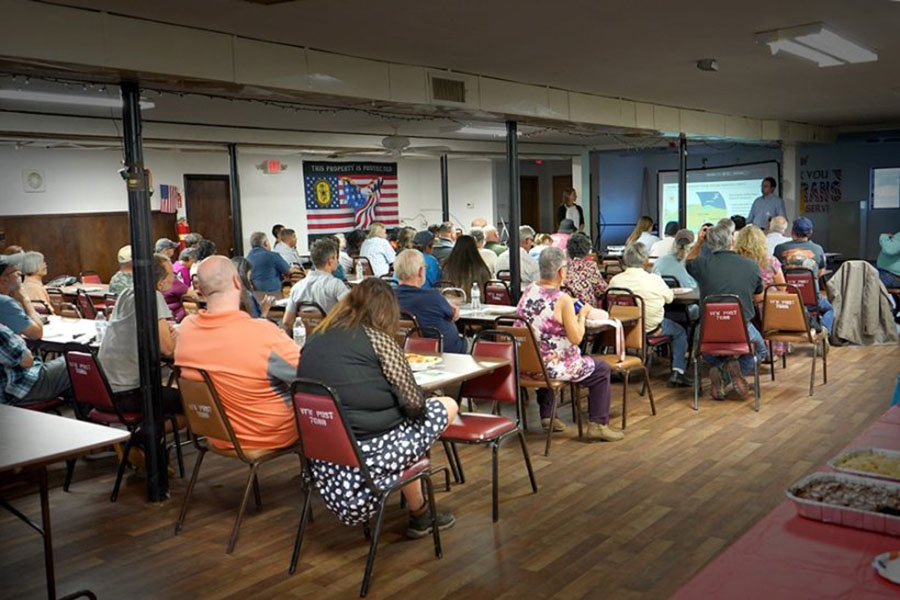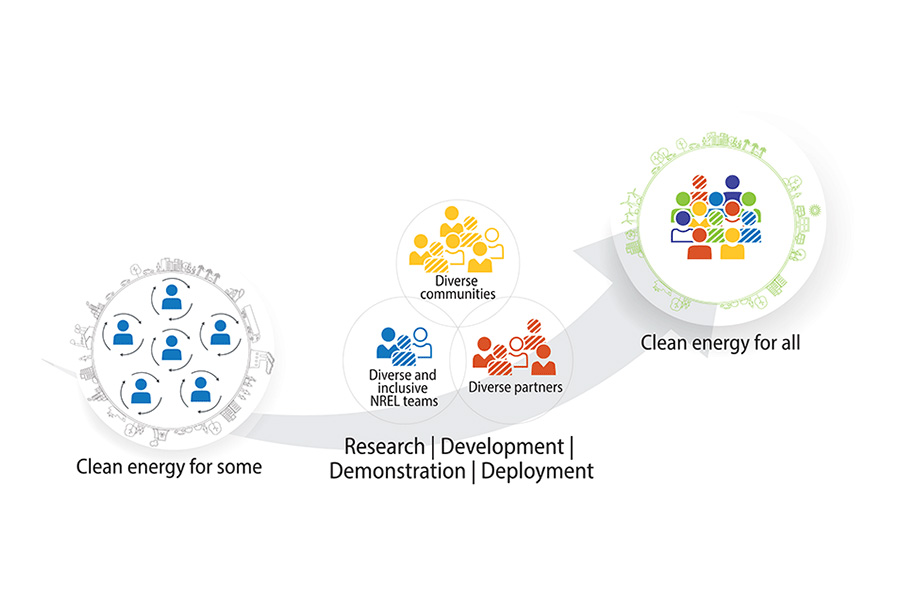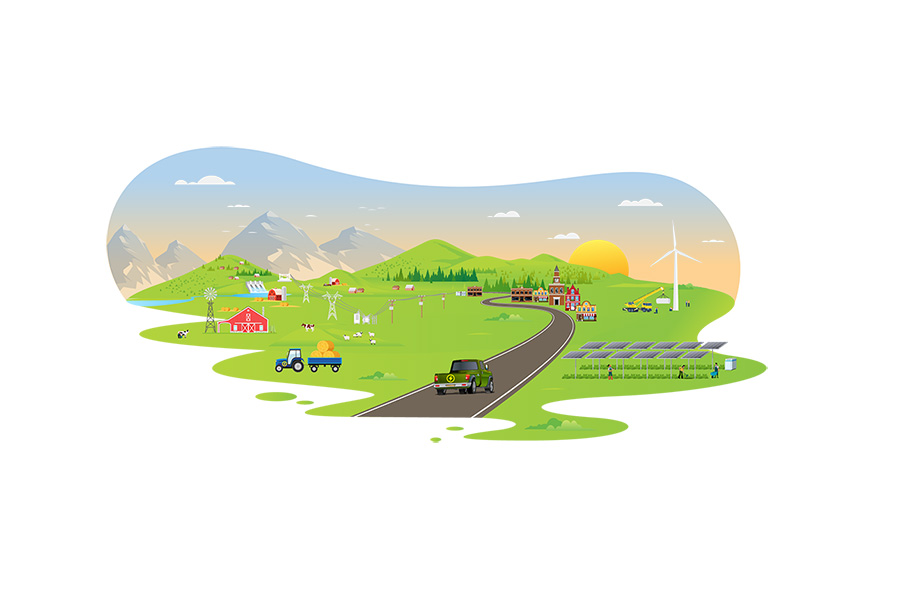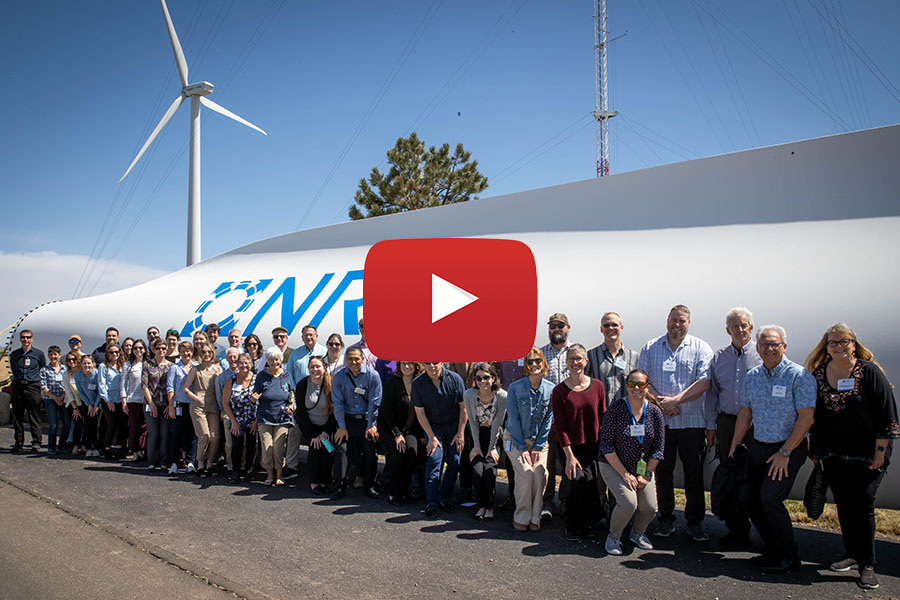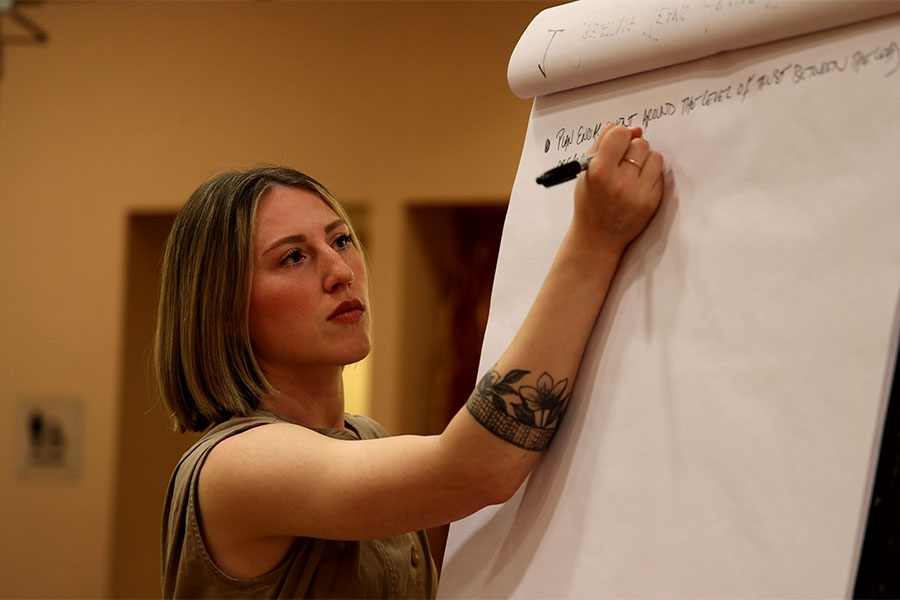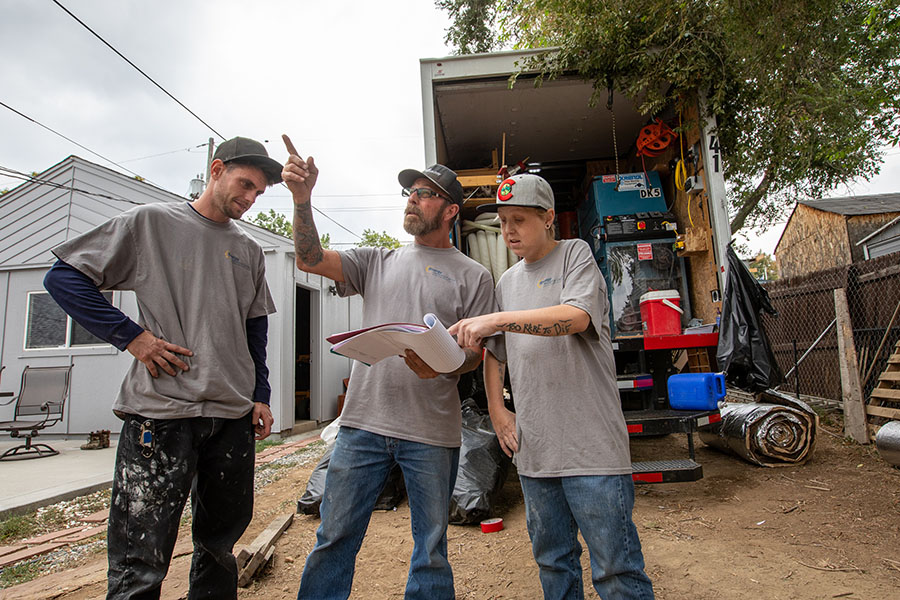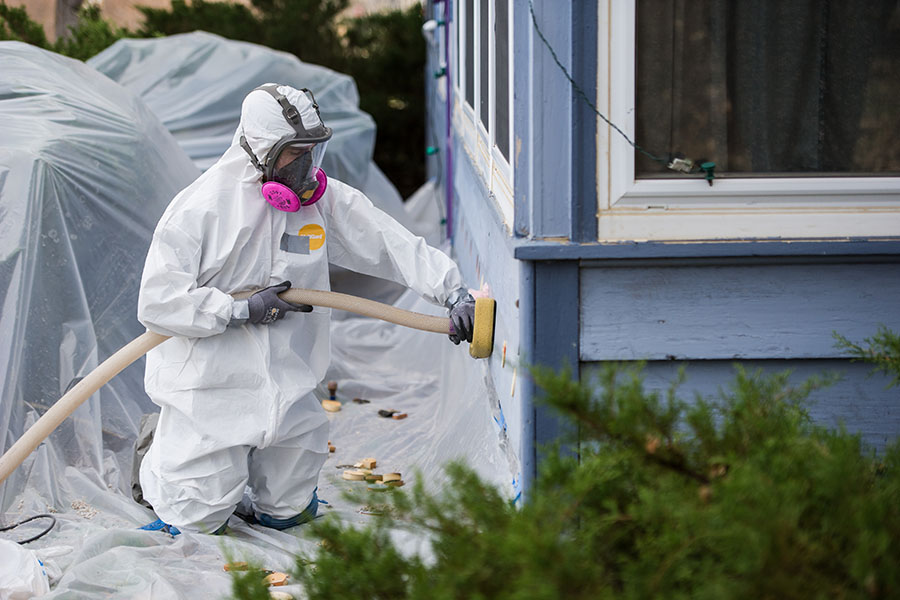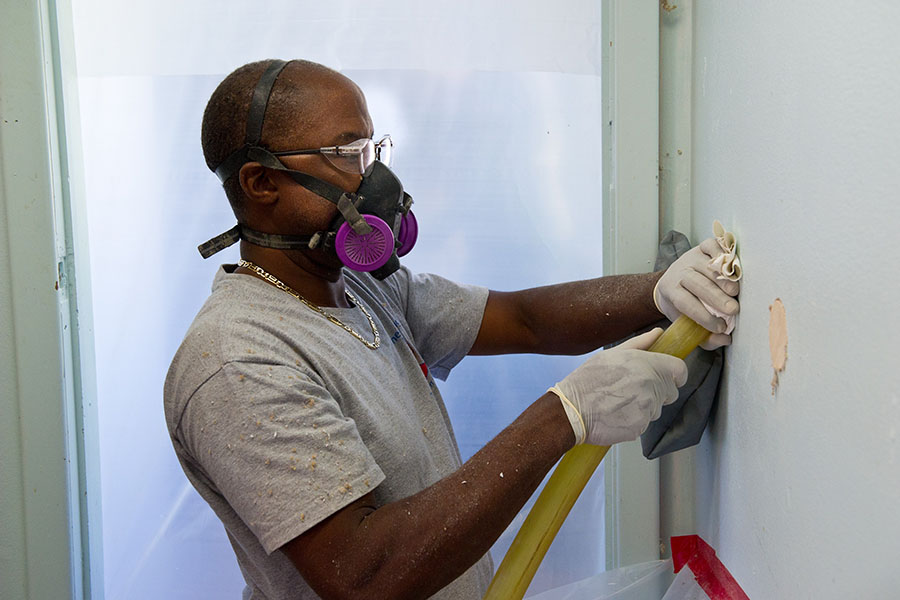With broad support from the U.S. Department of Energy (DOE), and leveraging knowledge from local partners and stakeholders, NREL meets communities where they are to provide energy expertise and solutions to develop efficient, affordable, equitable, and resilient energy systems.
NREL provides many forms of technical support that enable states, local jurisdictions, Tribes, utilities, industry, and other stakeholders to make informed energy transition decisions that address local priorities and challenges—including economic and workforce development, infrastructure planning, energy justice, and climate change.
Leveraging deep cross-disciplinary expertise throughout its world-class facilities, NREL applies decades of experience in leading-edge technologies, social sciences, policy, and finance to inform everything from energy system design to comprehensive community energy transitions.
Awards
NREL received two R&D 100 Awards for research innovations in August 2023. Among the winning technologies was the Simulation and Emulation for Advanced Systems (SEAS), which is the only software that simulates and validates energy transmission and distribution solutions across the grid and building, transportation, and renewables sectors.
Applied Research Highlights
Technical Assistance
NREL provides technical assistance to empower and enable community-driven energy solutions that meet local needs and priorities.
In FY 2023, NREL provided technical assistance through the following programs.
Clean Energy to Communities
NREL helped nearly 130 communities meet their clean energy goals through DOE's Clean Energy to Communities (C2C) program. C2C is an innovative DOE program, administered and supported by NREL, offering three unique types of support.
"Local governments, utilities, and community-based organizations know the nuances of their communities' energy challenges and priorities. C2C is designed to help these stakeholders access the research and development capabilities at DOE's national labs, including NREL, that they need to unlock practical pathways that achieve their goals."
Jenny Sumner
C2C project lead, NREL
"The breadth of our work has been a reminder of the complexity of the clean energy transition, and a reminder of the depth of expertise at national labs and our technical assistance delivery partner organizations."
Sika Gadzanku
C2C Expert Match lead, NREL
Clean Energy Demonstration on Mine Land Technical Assistance
NREL supported application review and delivery of technical assistance for 16 clean energy development projects on current and former mine land through DOE's Clean Energy on Mine Land program.
Learn about NREL's clean energy demonstration on mine land technical assistance.
Communities Local Energy Action Program
In FY 2023, NREL directly supported 22 community coalitions in their clean energy transition efforts through DOE's Communities LEAP (Local Energy Action Program) Pilot.
More than 30 researchers and technical experts across NREL's various technology programs provided customized assistance through community engagement, project scoping, research and analysis, and project planning.
All NREL technical assistance activities are expected to be complete with pilot communities during the winter of 2023.
Energy Efficiency and Conservation Block Grants
In partnership with DOE's State and Community Energy Program, NREL assisted 122 community, county, tribal, and state grant recipients through the DOE Energy Efficiency and Conservation Block Grant Program. NREL assists with review of communities' Energy Efficiency and Conservation Strategy documents, provides targeted analysis or feedback on technical questions that push forward the strategy or its implementation, helps communities identify other funding to leverage, and more.
Energy Improvements in Rural or Remote Areas
On behalf of DOE's Office of Clean Energy Demonstrations (OCED), NREL provides technical assistance for the Energy Improvements in Rural or Remote Areas (ERA) program.
"NREL is providing technical assistance through ERA's funding and prize opportunities that are lowering barriers and making funding opportunities more accessible for historically underserved rural and remote communities."
Sean Esterly
Project Manager, NREL
Energy Transitions Initiative Partnership Project
Through the DOE's Energy Transitions Initiative Partnership Project (ETIPP), NREL organized tailored support to meet communities' energy needs, regardless of where they were in their energy transition.
"I'm just absolutely amazed at the span of projects that are out there that are covered by the ETIPP program. I am humbled for our project to be included."
C.P. Smith
Executive Director of Cooperativa Hidroeléctrica de
la Montaña, ETIPP cohort 2 community
member
Indian Energy Technical Support
In partnership with DOE's Office of Indian Energy, NREL worked with 38 Tribal communities in FY 2023 to support their journey toward a clean energy future.
Learn more about NREL's decision support for Tribes.
"NREL has partnered with Tribes for decades providing resources, decision support, and direct technical assistance to support their self-defined energy goals and sovereignty."
Liz Weber
Tribal Energy Lead, NREL
Customized Technical Support Services
Through its technical support services, NREL matched direct inquiries with customized guidance and technical expertise to support renewable energy, energy efficiency, and sustainable transportation projects.
Tools and Resources
With broad support from DOE, NREL supports development of–and equips decision makers with–tools, data, and knowledge to set—and achieve—their energy goals.
Addressing Regulatory Challenges to Tribal Solar Deployment Guidebook
Through extensive engagement with Tribes, utilities, regulators, and other interested stakeholders, NREL and the Midwest Tribal Energy Resources Association developed a three-part publication and guidebook to offer potential solutions to solar energy deployment on Tribal lands.
Improving Accessibility and Workforce Development for Home Energy Professionals
NREL's weatherization team provided technical assistance and research to support DOE's Weatherization Assistance Program (WAP).
State and Local Planning for Energy Platform Expands Equity and Jobs Data
The State and Local Planning for Energy (SLOPE) Platform released new data layers in FY 2023 to help energy planners make more informed and data-driven decisions. SLOPE's clean energy job estimates layer allows users to gain insight on job growth potential by state in four areas. SLOPE also released six new equity-focused layers on the Data Viewer, as well as an equity filter for seven existing layers, allowing users to explore energy burden and social vulnerabilities by census tract.
Success Stories
NREL has supported thousands of communities on their clean energy journey. In FY 2023, NREL supported many communities through both direct partnerships and DOE technical assistance programs.
Partners and Collaborations
NREL continues to deepen relationships across the national laboratory complex. By working together, we can bring the full capabilities of the complex to address the most challenging issues in energy transition at the subnational scale. NREL is also expanding its on-the-ground partnerships to better collaborate with local and regional groups who directly support implementation of energy transition.
Energy Efficiency and Renewable Energy
Energy Transitions Initiative
Fossil Energy and Carbon Management
Geothermal Technologies Office
Hydrogen and Fuel Cell Technologies Office
Office of Clean Energy Demonstrations
Office of Economic Impact and Diversity
Office of Indian Energy Policy and Programs
Office of State and Community Energy Programs
Solar Energy Technologies Office
The following national laboratories directly contributed to the programs and projects in this report. Learn more about DOE national laboratories.
Lawrence Berkeley National Laboratory
Share
Last Updated Aug. 26, 2025




